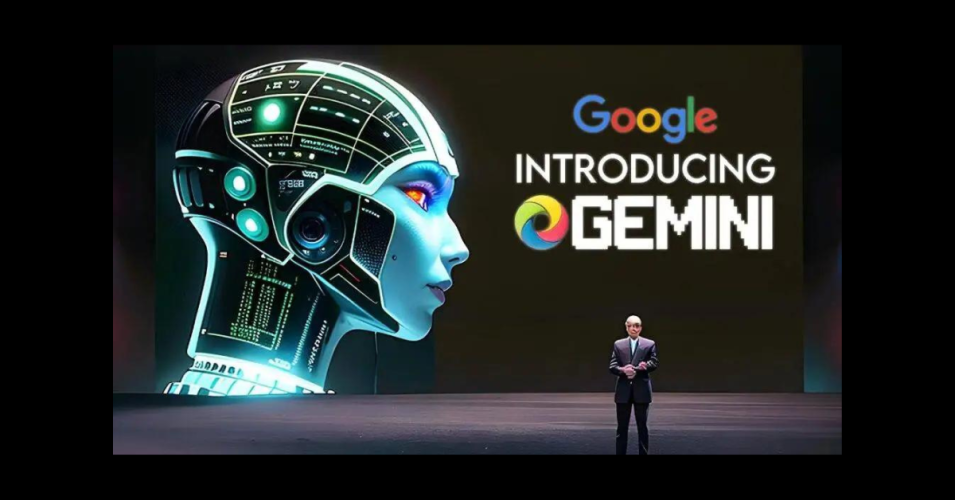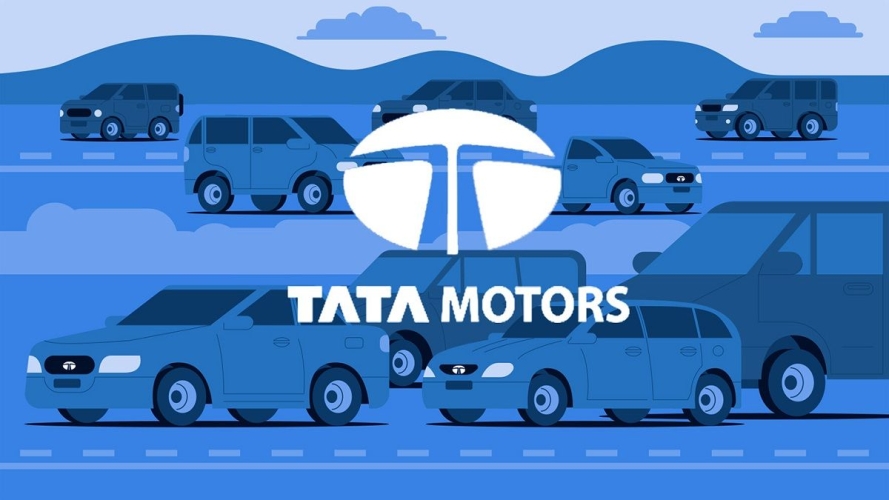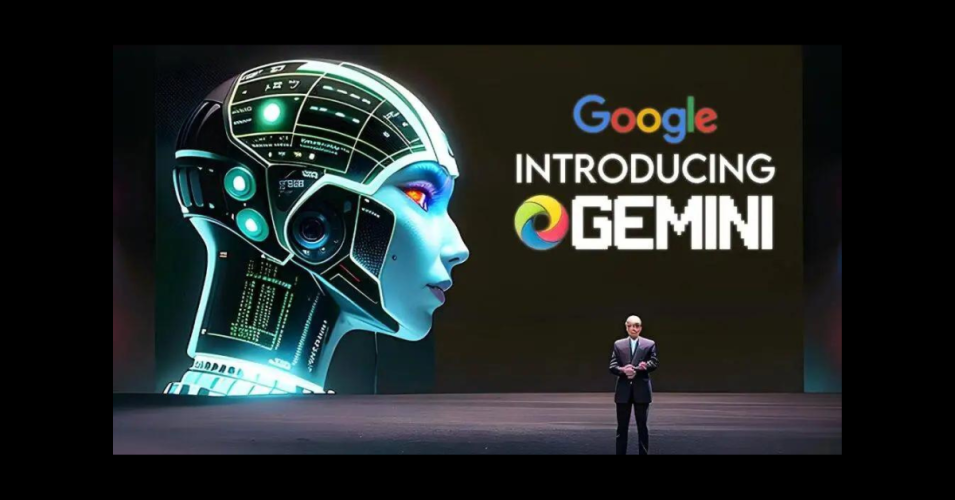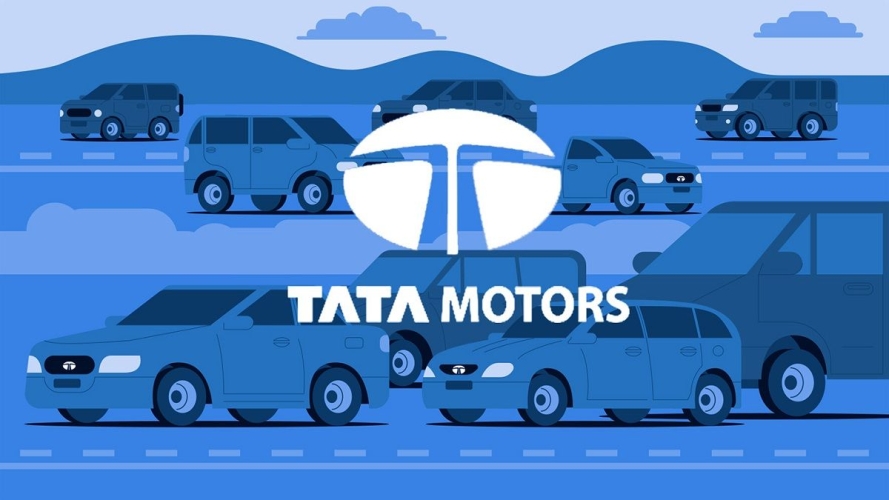एक्सिकॉम आईपीओ: उचित मूल्यांकन और बढ़ते बाजार अवसर से उत्साहित: एक्सिकॉम के शेयर 130 गुना ओवरसब्सक्राइब होने के बाद 87% लाभ के साथ सूचीबद्ध हुए, अब यह 12 महीने की वित्तीय स्थिति के आधार पर 3.2 गुना बिक्री और 58 गुना पूर्व-कर लाभ पर कारोबार करता है। क्या आपको निवेश करना चाहिए? बिजली आपूर्ति के कारोबार में लगी ताइवान स्थित प्रमुख कंपनी डेल्टा इलेक्ट्रॉनिक्स की तुलना में स्टॉक अब वित्त वर्ष 2024 की पहली छमाही की वार्षिक आय के 55x के पी/ई (मूल्य-आय) पर कारोबार करता है। डेल्टा इलेक्ट्रॉनिक्स की कीमत/बिक्री 1.88x है और यह 23.78x के पी/ई गुणक पर कारोबार करता है। एक्सिकॉम के प्रबंध निदेशक अनंत नाहटा आईपीओ से प्राप्त रकम का इस्तेमाल कारोबार बढ़ाने के लिए करना चाहते हैं। कंपनी के पास अनुमानित 26% राजस्व बाजार हिस्सेदारी है और क्षमता के मामले में यह भारत में शीर्ष ईवी चार्जर निर्माता है। किसी को अभी स्टॉक रखना चाहिए या खरीदना चाहिए या बेचना चाहिए, इसका उत्तर इस कीमत पर जटिल हो जाता है। मूल्यांकन अब सस्ते नहीं हैं और निकट भविष्य में दो चिंताएँ हैं। • इलेक्ट्रिक कार उद्योग की बिक्री में पिछले कई महीनों से कुछ कमी देखी गई है और हाल ही में कीमतों में कटौती से विकास में तेजी आ सकती है, लेकिन बड़े विकास का ट्रिगर नए मॉडल लॉन्च से आएगा। • फास्ट चार्जर के लिए बड़े ऑर्डर सार्वजनिक क्षेत्र से आते हैं जहां सबसे कम बोली लगाने वाला अनुबंध जीतता है, और इससे मार्जिन और बाजार हिस्सेदारी पर नकारात्मक प्रभाव पड़ता है। प्रतिस्पर्धी तीव्रता में वृद्धि और ईवी उद्योग में तेजी और मंदी व्यवसाय का हिस्सा है और अच्छी कंपनियां ऐसे दौर से गुजरती हैं। लेकिन उच्च मूल्यांकन पर लिस्टिंग के बाद इसका स्वयं का निष्पादन और बाह्यताएं निकट अवधि के प्रदर्शन को प्रभावित करेंगी। कंपनी दो प्रमुख व्यावसायिक क्षेत्रों में काम करती है - एक दूरसंचार टावरों और डेटा केंद्रों को लिथियम-आयन बैटरी-आधारित पावर बैकअप प्रदान करना है, और दूसरा ईवी चार्जिंग उपकरण समाधान पेश करना है। सितंबर 2023 को समाप्त बारह महीनों में एक्सिकॉम का राजस्व 947 करोड़ रुपये था 9% एबिड्टा (ब्याज, कर, मूल्यह्रास और परिशोधन से पहले की कमाई) मार्जिन और 5% पीबीटी (कर से पहले लाभ) मार्जिन। लाभ मार्जिन अस्थिर रहा है लेकिन ऊपर की ओर रुझान दिखा रहा है। भारित औसत आधार पर आरओएनडब्लू (नेट वर्थ पर रिटर्न) 12.25% पर मामूली रहा है। source: et
गूगल के 'अविश्वसनीय' जेमिनी ने एलएलएम को कम आंका। क्या मेटा, माइक्रोसॉफ्ट बेहतर करेंगे? Google जेमिनी की हालिया गिरावट ने माइक्रोसॉफ्ट और मेटा पर ध्यान आकर्षित किया है। विशेषज्ञों का मानना है कि 'फर्स्ट मूवर' का खिताब जीतने के लिए एलएलएम को दौड़ाने का 'बेक-फास्ट, ब्रेक-फास्ट' दृष्टिकोण सुर्खियां बटोर सकता है, लेकिन दर्शकों को त्रुटियों और पूर्वाग्रहों का आधा-अधूरा व्यंजन परोसता है। क्या इन जटिल भाषा मॉडलों में महारत हासिल करना बिग टेक की आरंभिक अपेक्षा से अधिक कठिन है? Google के सितारे वस्तुतः मिथुन राशि के साथ संरेखित नहीं लगते हैं। ज्योतिष में, मिथुन राशि चक्र का तीसरा चिन्ह है, लेकिन Google के लिए यह कृत्रिम बुद्धिमत्ता (एआई) की अभी भी विकसित हो रही दुनिया में अपनी उपस्थिति महसूस कराने के लिए पहला बड़ा कदम है। जैसा कि चीजें सामने आईं, Google अब अपने प्रमुख LLM (बड़े भाषा मॉडल) जेमिनी में गंभीर खामियों से जूझ रहा है। शर्मनाक घटनाओं की एक श्रृंखला के बाद - नस्लवादी छवि निर्माण से लेकर भारतीय प्रधान मंत्री को "फासीवादी" करार देने तक - परियोजना के भविष्य और यहां तक कि सीईओ सुंदर पिचाई के नेतृत्व के बारे में सवाल घूम रहे हैं। 3 मार्च को सैन फ्रांसिस्को के एजीआई हाउस में हाल ही में जेमिनी हैकथॉन के दौरान Google के सह-संस्थापक सर्गेई ब्रिन ने दबे स्वर में स्वीकार किया, "हमने निश्चित रूप से छवि निर्माण में गड़बड़ी की है।" यह स्वीकारोक्ति पिचाई के 29 फरवरी के ज्ञापन के बाद आई है, जिसमें उन्होंने कहा था स्वीकार करते हैं, "हमें यह सब गलत लगा"। जब Google, दुनिया की अग्रणी तकनीकी दिग्गज, अपने प्रमुख LLM के साथ लड़खड़ाती है, तो यह एक महत्वपूर्ण प्रश्न उठाता है: क्या इन जटिल भाषा मॉडलों में महारत हासिल करना बिग टेक की शुरुआत में अनुमानित तुलना में अधिक कठिन है? भाषा को समझना शब्दावली और व्याकरण से कहीं आगे तक जाता है। इस कौशल को विकसित करने में मनुष्यों को हजारों साल लग गए, और यहाँ तक कि उस्ताद भी गलतियाँ करते हैं। अल मॉडलों से यह अपेक्षा करना कि वे संदर्भ, व्यंग्य, संस्कृति और इरादे की बारीकियों को तुरंत समझ लें, एक अनुचित मांग है। हमने इन सूक्ष्मताओं को पकड़ने के लिए पर्याप्त परिष्कृत एल्गोरिदम नहीं बनाया है। खैर, OpenAI ने 2015 में ChatGPT पर काम करना शुरू किया, नवंबर 2022 में लॉन्च करने से पहले इसे प्रशिक्षित करने में वर्षों का निवेश किया। लेकिन Google ने पीछे छूट जाने के डर से, मार्च 2023 में चार महीने के भीतर बार्ड को लॉन्च किया। इसने इसके लिए गुंजाइश और समय कहां छोड़ा था मॉडल को व्यापक प्रशिक्षण से गुजरना होगा? प्रथम होने का दबाव कंपनियों को एलएलएम को दरवाजे से बाहर करने के लिए प्रेरित कर रहा है। जैसा कि सांता क्लारा यूनिवर्सिटी के ब्रायन ग्रीन कहते हैं, "बढ़ती प्रतिस्पर्धा के कारण एलएलएम में जल्दबाजी की जा रही है।" इसका मतलब अक्सर यह होता है कि उपयोगकर्ताओं को बग का सामना करना पड़ता है और कंपनियां तुरंत उन्हें ठीक करने के लिए संघर्ष करती हैं। हालाँकि यह तेजी से बग फिक्स की अनुमति देता है, "जोखिम यह है कि उनका अधूरा उत्पाद उन्हें मूर्ख बना देता है"। बड़े पैमाने पर वास्तविक दुनिया के टेक्स्ट डेटा पर प्रशिक्षित जेमिनी और चैटजीपीटी को अपने पूर्वाग्रह और सीमाएं विरासत में मिल सकती हैं। इससे रूढ़िवादिता को बनाए रखने, आपत्तिजनक भाषा उत्पन्न करने या यहां तक कि कुछ पहचानों और संस्कृतियों को समझने में असफल होने का जोखिम होता है। जबकि तकनीकी कंपनियां डेटा क्यूरेशन और विविध प्रतिनिधित्व के लिए प्रयास करती हैं, वास्तविक समावेशिता प्राप्त करना एक निरंतर संघर्ष बना हुआ है। "वर्षों से, बिग टेक, जिसे मैं आधे-मजाक में सिलिकॉन वैली आचार संहिता कहता हूं - तेजी से आगे बढ़ें, चीजों को तोड़ें, बाद में माफी मांगें - का पालन करते हुए हर चीज पर गति को प्राथमिकता दी गई है। यह दृष्टिकोण, हालांकि ईमेल या सोशल मीडिया जैसे कम प्रभावशाली अनुप्रयोगों के लिए प्रभावी है , अल की व्यापक क्षमताओं के साथ समस्याग्रस्त हो जाता है," अल नैतिकतावादी और प्रमुख जिबू एलियास कहते हैं इंडियाएआई के वास्तुकार और अनुसंधान और सामग्री प्रमुख - भारतीय का राष्ट्रीय एआई पोर्टल सरकार। मामले को और अधिक जटिल बनाते हुए, प्रशिक्षण डेटा स्वयं पक्षपाती, अधूरा या विरोधाभासी हो सकता है। एलएलएमएस को पूर्वाग्रहों को बनाए रखने या तथ्यात्मक त्रुटियां पैदा करने से बचने के लिए इस डेटा को प्रभावी ढंग से फ़िल्टर और विश्लेषण करने की आवश्यकता है। हालाँकि, मौजूदा मॉडलों में उनके तर्क में पारदर्शिता की कमी है, जिससे छिपे हुए पूर्वाग्रहों और संभावित त्रुटियों के बारे में चिंताएँ बढ़ रही हैं। उपयोगकर्ता अपनी विशिष्ट आवश्यकताओं के अनुरूप सटीक, सम्मानजनक और विविध आउटपुट चाहते हैं। लेकिन इस कार्य की जटिलता, भयंकर प्रतिस्पर्धा के साथ मिलकर, तकनीकी दिग्गजों को एलएलएम कोड को वास्तव में क्रैक करने के लिए आवश्यक अनुसंधान एवं विकास और दीर्घकालिक प्रतिबद्धता को कम आंकने के लिए प्रेरित कर सकती है। एलियास कहते हैं, ''भारत में अल की तीव्र प्रगति के लिए न केवल बहुभाषावाद की चुनौतियों का सामना करना पड़ता है, बल्कि नवाचार की वास्तविक संस्कृति को बढ़ावा देना भी चुनौतियों का सामना करना पड़ता है।'' उन्होंने आगे कहा कि, भारतीय तकनीकी परिदृश्य, जो अपने सेवा-केंद्रित दृष्टिकोण के लिए जाना जाता है, अक्सर वैश्विक प्रतिस्पर्धियों से पीछे रह जाता है। अग्रणी सफलताएँ। भारत जैसे विविध उपयोगकर्ता बाजारों का आकर्षण बिग टेक को शामिल करने की होड़ में स्पष्ट है स्थानीय भाषाओं को उनके अल मॉडल में। कुछ के नाम बताएं- A14भारत और भारत विकास केंद्र (IDC) के साथ माइक्रोसॉफ्ट की जुगलबंदी परियोजना, Google की वाणी परियोजना। बेंगलुरु स्थित एएल और रोबोटिक्स टेक्नोलॉजी पार्क (एआरटीपार्क) और भारतीय विज्ञान संस्थान (आईएससी) और हाल ही में मेटा सर्वम अल के साथ मिलकर एक जनरेटिव एएल बन गया है। source: et
टॉप पिक्स: स्टॉक रिपोर्ट में इन शेयरों को 10 में से 10 अंक मिले: Refinitiv, 4,000+ सूचीबद्ध शेयरों के लिए विस्तृत कंपनी विश्लेषण करता है। विस्तृत कंपनी विश्लेषण के अलावा, रिपोर्ट प्रत्येक घटक के लिए विश्लेषकों के पूर्वानुमान और प्रवृत्ति विश्लेषण का भी मिलान करती है। स्टॉक रिपोर्ट्स प्लस में औसत स्कोर की गणना पांच प्रमुख निवेश उपकरणों - कमाई, बुनियादी बातों, सापेक्ष मूल्यांकन, जोखिम और मूल्य गति का मात्रात्मक विश्लेषण करके की जाती है। आपको सर्वोत्तम निवेश निर्णय लेने में मदद करने के लिए, हमने उन सभी कंपनियों की जांच की है जिन्हें स्टॉक रिपोर्ट्स प्लस द्वारा उच्चतम स्कोर से सम्मानित किया गया है और इसे इंस्टीट्यूशनल ब्रोकर्स एस्टीमेट सिस्टम (आईबीईएस) के अनुसार 'मजबूत खरीदें/खरीदें' विश्लेषकों की सिफारिश के साथ जोड़ दिया गया है। . हमारे साप्ताहिक शीर्ष चयन आपको मजबूत बुनियादी सिद्धांतों वाली कंपनियों के लिए कार्रवाई योग्य अंतर्दृष्टि प्रदान कर सकते हैं। रिपोर्ट में बुनियादी घटक के तहत लाभप्रदता, ऋण, कमाई की गुणवत्ता और लाभांश रुझान का मूल्यांकन किया जाता है। प्रत्येक उप-घटक को 1 से 10 के पैमाने पर रैंक करने के लिए समान महत्व दिया जाता है। सापेक्ष मूल्यांकन के तीन घटक होते हैं - बिक्री की कीमत (50% भार), पिछला पी/ई (25% भार) और आगे का पी/ई (25) % वज़न)। इन मेट्रिक्स का मूल्यांकन समग्र बाजार, सूचकांक और कंपनी के अपने ऐतिहासिक 5-वर्षीय औसत के आधार पर किया जाता है। अस्थिरता, रिटर्न का परिमाण, बीटा और सहसंबंध सहित दीर्घकालिक (5-वर्ष) और अल्पकालिक (90-दिवसीय) स्टॉक प्रदर्शन उपायों की एक श्रृंखला का मूल्यांकन करके जोखिम स्कोर। प्रत्येक कारक को समान रूप से महत्व दिया जाता है। सबसे कम जोखिम वाले शेयरों को 10 की जोखिम रेटिंग दी जाती है। साप्ताहिक रिपोर्ट दो तकनीकी प्रदर्शन कारकों के संयोजन के आधार पर मूल्य गति रेटिंग की गणना करती है: सापेक्ष शक्ति (70% वजन) और मौसमी (30% वजन)। जबकि समग्र घटक रेटिंग की गणना करने के लिए 1 महीने, 3 महीने और 6 महीने के आरएसआई को ध्यान में रखा जाता है, मौसमी पिछले 10 वर्षों में कंपनी और उद्योग के लिए चालू महीने और अगले 2 महीनों के लिए औसत मासिक मूल्य प्रदर्शन को ध्यान में रखती है। . प्रत्येक घटक को 1-10 के पैमाने पर एक अंक दिया जाता है (सबसे अनुकूल को 10 अंक दिए जाते हैं)। इसके बाद, स्टॉक के समग्र दृष्टिकोण को दर्शाने वाले एक औसत स्कोर की गणना सामान्य रूप से वितरित उपर्युक्त घटक रेटिंग का एक साधारण औसत लेकर की जाती है। 8 से 10 के स्कोर को सकारात्मक माना जाता है, 4 से 7 को तटस्थ और 1 से 3 को नकारात्मक दृष्टिकोण दिया जाता है। विश्लेषकों की अनुशंसा के बिना 10 के औसत स्कोर वाले स्टॉक इस सूची में शामिल नहीं हैं। हर हफ्ते स्कोर का पुनर्मूल्यांकन किया जाता है जबकि रिपोर्ट में सभी प्रासंगिक डेटा बिंदु दैनिक रूप से अपडेट किए जाते हैं। 10/10 औसत स्कोर वाली कंपनियां और विश्लेषकों की 'मजबूत खरीद/खरीद' अनुशंसाएं विश्लेषकों का मतलब है सिफ़ारिश कंपनी का नाम मजबूत खरीदें/खरीद संख्या गिनती पकड़ो संख्या कम करें/बेचें mktcap_name कोल इंडिया लिमिटेड खरीदना 13 2 2 बड़ा प्लिंडस्ट्रीज़ लिमिटेड खरीदना 77 2 2 बड़ा डालमिया भारत लिमिटेड खरीदना 21 3 3 बड़ा हीरो मोटोकॉर्प लिमिटेड खरीदना 21 6 8 बड़ा अपोलो टायर्स लिमिटेड खरीदना 13 5 5 बड़ा बैंक ऑफ बड़ौदा लिमिटेड खरीदना 18 8 बड़ा टाटा मोटर्स लिमिटेड खरीदना 21 5 13 बड़ा मारुति सुजुकी इंडिया लिमिटेड खरीदना 28 6 3 बड़ा गुजरात स्टेट पेट्रोनेट लिमिटेड खरीदना 17 3 2 बड़ा जिंदल स्टील एंड पावर आईडी खरीदना 15 3 बड़ा भारतीय स्टेट बैंक खरीदना 32 5 3 बड़ा इंडियन बैंक खरीदना 3 0 बड़ा तेल और प्राकृतिक गैस निगम। एलटीए खरीदना 15 बड़ा केनरा बैंक लिमिटेड खरीदना बड़ा source: et
निकट अवधि में टैमो स्टॉक और मूल्य के लिए डीमर्जर समाचार ड्राइव: टाटा मोटर्स के अलग होने की घोषणा ने वाणिज्यिक और यात्री वाहन दोनों डिवीजनों को और अधिक मजबूत बना दिया है। प्रत्येक स्वयं को वित्तपोषित करने और एक ही समय में अधिक चुस्त होने में सक्षम है। आपको इतनी देर क्यों हुई? टाटा मोटर्स के कारों (यात्री वाहन) और ट्रकों (वाणिज्यिक वाहन) व्यवसाय के अलग होने में काफी समय लगा लेकिन यह कंपनी की प्रबंधन टीम के लिए बहुत बड़ी उपलब्धि है। यह एक ऐसी कंपनी है जो बदल गई है और कैसे। एमके रिसर्च के अनुसार, FY24 में ROIC (निवेशित पूंजी पर रिटर्न) 25.4% होने की उम्मीद है, जो FY23 में 3% से तेज वृद्धि है। यह विकास कोई बड़ा आश्चर्य नहीं है, क्योंकि टाटा मोटर्स ने 1 जनवरी, 2022 को भारत के यात्री वाहन (पीवी) व्यवसाय को एक अलग कंपनी में विभाजित कर दिया था। वाणिज्यिक वाहन (सीवी) और पीवी को उनके संबंधित सीईओ द्वारा स्वतंत्र रूप से चलाया जा रहा था। और अलग-अलग वित्तीय रिपोर्ट करना। कंपनी ने 2023 में अमेरिकी डिपॉजिटरी शेयरों और अंतर वोटिंग अधिकारों को हटा दिया है और इससे तरलता में सुधार हुआ है और ईपीएस (प्रति शेयर आय) में वृद्धि हुई है। पीवी और सीवी व्यवसायों को सूचीबद्ध करने का मुख्य लाभ व्यवसाय को और सरल बनाने में मदद करेगा, जिसे निवेशक पसंद करते हैं। एक समय था जब केवल सीवी व्यवसाय या जेएलआर ही प्रदर्शन कर रहा था। आज, पहली बार, जेएलआर और सीवी व्यवसाय दोनों अच्छा प्रदर्शन कर रहे हैं। लगभग GBP1.5 बिलियन के मजबूत मुक्त नकदी प्रवाह के साथ, कंपनी शुद्ध ऋण मुक्त हो सकती है, और भारत पीवी/ईवी का भी समर्थन कर सकती है। टाटा मोटर्स का स्टॉक पिछले तीन वर्षों में तीन गुना से अधिक हो गया है, और पिछले तीन महीनों में 44% की वृद्धि हुई है, जो एमएंडएम और मारुति सुजुकी से बेहतर प्रदर्शन कर रहा है। सुव्यवस्थित और अधिक जवाबदेह प्रबंधन के लाभ के आधार पर स्टॉक का मूल्य निर्धारण किया जा रहा है। इसने प्रमुख रणनीतिक पहलों को सुनिश्चित किया है जिन्होंने काम किया है और व्यापार में बदलाव आया है। पिछले दो वर्षों में, बेहतर पूंजी संरचना और संगठनात्मक संरचना ने मिलकर वित्तीय प्रदर्शन को प्रेरित किया है। source:et
Bets on Chinese stocks: Hang Seng index ETF, anyone? Investing in the Chinese market may seem like an extreme strategy, but some investors and fund managers are willing to bite the bullet. What's pulling them to Hang Seng, and not the US market? The Hang Seng index is currently trading at a price-earning (P/E) multiple of 10.23. Its life- high earnings multiple is above 22. In India, if anyone wants to take exposure to Hang Seng, it can be through Hang Seng BeES, an exchange traded fund (ETF) by Nippon currently trading at INR250 levels. An index ETF mirrors the index and provides returns in sync with the index returns. But the Hang Seng ETF has a deviation of more than 3.5% compared to the underlying index. From the recent lows of 14,800, the Hang Seng index went up 14.21% in the last one month, but the Nippon Hang Seng BeES ETF has risen 11%. Reasoning the deviation, Arun Sundaresan, head-ETF at Nippon Life India Asset Management, told ET Prime, "The fund has a very high expense ratio. Also, because of currency conversion, the deviation further broadens." The ETF since inception has a CAGR of 6%. The Hang Seng index, after making a high of 33,500 levels in 2018, went on a downward trajectory, plummeting around 57% to the 14,600 levels at present. It's not that the Chinese market has had a bad start to the year 2024. Since the last four years, the annual returns of the index have been negative. In 2020, the annual returns for the index were a negative 3.4% followed by deeper cuts in the next two years at a negative 14.08% and a negative 15.46% for 2021 and 2022, respectively. Last year, the annual return for the index stood at -8.61% while the global markets are scaling new peaks. China recently lowered rates and took several other steps to boost investors' confidence and inject liquidity in the market. These moves are aimed at stabilising the property sector in crisis and to prevent deflationary conditions from leading to a broader downward spiral. Following are some of the key steps taken by the Chinese authorities: • China's Securities Regulatory Commission warned earlier this month that it would take steps against 'malicious' short selling. On January 24, China's central bank announced a 50-basis point cut in reserve ratio requirements that injected 1 trillion yuan (or USD139.8 billion) of capital into the market. • On February 20, China's central bank announced a 25-basis point reduction in the banks' five-year LPR. Loan prime rate or LPR is a benchmark interest rate that commercial banks use for long-term lending. • The latest cut is the largest since LPR was introduced as the main lending rate benchmark in 2019. It currently stands at 3.95%. source: et
Exicom IPO: Charged up by reasonable valuation and a growing market opportunity: The Exicom shares listed with 87% gains after being oversubscribed 130 times, now it trades at 3.2 x sales and 58x pre-tax profits based on trailing 12-month financials. Should you invest? The stock now trades at a P/E (price-earnings) of 55x of H1 FY24 annualised earnings when compared to Delta Electronics, a Taiwan-based major engaged in the business of power supplies. The price/sales for Delta Electronics work out to be 1.88x and it trades at a P/E multiple of 23.78x. Ananta Nahata, the managing director of Exicom, wants to use the IPO proceeds to grow the business. The company has an estimated 26% revenue market share and is the top EV charger manufacturer in India in terms of capacity. The answer to whether one should hold or buy or sell the stock now, gets complicated at this price. The valuations are no longer cheap and near term there are two concerns. • The electric car industry sales have seen some loss of momentum for the last several months and the recent price cuts can revive growth, but the larger growth trigger will come from new model launches. • The large orders for fast chargers come from the public sector where the lowest bidder wins the contract, and this has negative readthrough for margins and market share. The increase of competitive intensity and acceleration and deceleration of EV industry are part of business and good companies go through such periods. But at higher valuations post listing its own execution and externalities will affect near term performance. The company operates in two key business areas - one is providing lithium-ion battery-based power backup to telecom towers and data centres, and the other is offering EV charging equipment solutions. Exicom had a revenue of INR947 crore in trailing twelve months ended September 2023 with 9% Ebidta (earnings before interest, taxes, depreciation, and amortisation) margin and 5% PBT (profit before tax) margin. Profit margins have been volatile but showing an upward trend. RONW (return on net worth) has been modest at 12.25%, on a weighted average basis. source:et
Google's 'unreliable' Gemini underestimated LLMs.will Meta, Microsoft do better? Google Gemini's recent stumble has put the spotlight on Microsoft and Meta. Experts feel the 'bake-fast, break-fast' approach of rushing LLMs out the door to win the 'first mover' title might grab headlines but ends up serving audiences a half-baked dish of errors and biases. Are these complex language models trickier to master than Big Tech initially anticipated? Google's stars do not seem to be aligned with Gemini, literally. In astrology, Gemini is the third sign of the zodiac, but for Google it's a first mega step to make its presence felt in the still-evolving world of artificial intelligence (AI). As things turned out, Google is now grappling with critical flaws in Gemini, its flagship LLM (large language model). Following a series of embarrassing incidents - from racist image generation to labelling the Indian Prime Minister a "fascist" - questions are swirling about the future of the project, and even the leadership of CEO Sundar Pichai. "We definitely messed up on image generation," admitted a subdued Sergey Brin, Google's co-founder, during a recent Gemini Hackathon at AGI House in San Francisco on March 3. This admission comes hot on the heels of Pichai's February 29 memo where he admits, "We got it all wrong". When Google, the world's leading tech giant, stumbles with its flagship LLM, it raises a crucial question: Are these complex language models trickier to master than Big Tech initially anticipated? Understanding language goes far beyond vocabulary and grammar. Humans took thousands of years to develop this skill, and even masters do make mistakes. Expecting Al models to instantly grasp the nuances of context, sarcasm, culture, and intent is an unfair ask. We simply haven't built the algorithms sophisticated enough to capture these subtleties. Well, OpenAI started working on ChatGPT in 2015, investing years into training it, before launching it in November 2022. But Google, fearing to be left behind, launched Bard within four months in March 2023. Where did it leave scope and time for the model to undergo extensive training? The pressure to be first is pushing companies to rush LLMs out the door. As Brian Green of Santa Clara University observes, "LLMs are being rushed... due to the accelerating competition." This often means users encounter bugs and companies scramble to fix them on the fly. While this allows for faster bug fixes, "the risk is that their incomplete product makes them look foolish". Gemini and ChatGPT, trained on massive real-world text data, can inherit their biases and limitations. This translates to a risk of preserving stereotypes, generating offensive language, or even failing to understand certain identities and cultures. While tech companies strive for data curation and diverse representation, achieving true inclusivity remains a continuous struggle. "For years, Big Tech, following what I half-jokingly term the Silicon Valley Code of Ethics - move fast, break things, apologise later-has prioritised speed over everything. This approach, albeit effective for less impactful applications like email or social media, becomes problematic with Al's broader capabilities," says Jibu Elias, an Al ethicist and the chief architect and research and content head of INDIAai - The national AI portal of the Indian government. Further complicating matters, training data itself can be biased, incomplete, or contradictory. LLMS need to filter and analyse this data effectively to avoid perpetuating biases or generating factual errors. However, current models lack transparency in their reasoning, raising concerns about hidden biases and potential errors. Users want accurate, respectful, and diverse outputs tailored to their specific needs. But the complexity of this task, coupled with the fierce competition, might be leading tech giants to underestimate the R&D and long-term commitment needed to truly crack the LLM code. "The rapid advancement of Al in India faces challenges not only of multilingualism but also of fostering a genuine culture of innovation," says Elias, adding that, the Indian tech landscape, known for its service-centric approach, frequently trails behind global peers in pioneering breakthroughs. The allure of diverse user markets like India is evident in the Big Tech's rush to incorporat local languages into their Al models. To name a few-Microsoft's Jugalbandi project with A14Bharat and the India Development Center (IDC), Google's Vaani project with the Bengaluru-based Al and Robotics Technology Park (ARTPARK) and the Indian Institute of Science (ISC) and most recently Meta joining forces with Sarvam Al a generative AL. source: et
Top Picks:These stocks scored 10 on 10 on Stock Reports: Refinitiv, undertakes detailed company analysis for 4,000+ listed stocks. In addition to detailed company analysis, the report also collates analysts' forecasts and trend analysis for each component. An average score in Stock Reports Plus is calculated by undertaking quantitative analysis of five key investment tools - earnings, fundamentals, relative valuation, risk and price momentum. To help you make best investment decisions, we have screened out all companies that have been awarded the highest score by Stock Reports Plus and clubbed it together with a 'Strong Buy/Buy' analysts' recommendation as per Institutional Brokers' Estimate System (IBES). Our weekly top picks can provide you actionable insights for companies with strong fundamentals. Profitability, debt, earnings quality and dividend trends are evaluated under the fundamentals component in the report. Each sub-component is given equal weightage to be ranked on a scale of 1 to 10. Relative valuation has three components - price to sales (50% weight), trailing P/E (25% weight) and forward P/E (25% weight). These metrics are evaluated against the overall market, index and company's own historic 5-year averages. Risk score by evaluating a series of long term (5-year) and short term (90-day) stock performance measures including volatility, magnitude of returns, beta and correlation. Each factor is equally weighted. A risk rating of 10 is awarded to least risky stocks. The weekly report calculates price momentum rating based on a combination of two technical performance factors: relative strength (70% weight) and seasonality (30% weight). While RSI for 1 month, 3 months and 6 months is taken into account to calculate the overall component rating, seasonality takes into account average monthly price performance for the current month and next 2 months for the company and the industry, over the past 10 years. Each component is assigned a score on a scale of 1-10 (10 being awarded to the most favorable). Thereafter, an average score indicating the overall outlook of the stock is calculated by taking a simple average of the above-mentioned component ratings distributed normally. A score of 8 to 10 is considered positive, 4 to 7 is neutral and 1 to 3 is given a negative outlook. Stocks with an average score of 10 with no recommendation from analysts are not included in this list. The scores are reevaluated every week whereas all relevant data points in the report are updated daily. Companies with 10/10 average score and 'Strong Buy/Buy' recommendations from analysts Analysts Mean Recommendation Company Name Strong Buy/Buy Count Hold Count Reduce/Sell Count mktcap_name Coal India Ltd Buy 13 2 2 Large Plindustries Ltd Buy 77 2 2 Large Dalmia Bharat Ltd Buy 21 3 3 Large Hero MotoCorp Ltd Buy 21 6 8 Large Apollo Tyres Ltd Buy 13 5 5 Large Bank of Baroda Ltd Buy 18 8 Large Tata Motors Ltd Buy 21 5 13 Large Maruti Suzuki India Ltd Buy 28 6 3 Large Gujarat State Petronet Ltd Buy 17 3 2 Large Jindal Steel And Power Id Buy 15 3 Large State Bank of India Buy 32 5 3 Large Indian Bank Buy 3 0 Large Oil and Natural Gas Corporation. Lta Buy 15 Large Canara Bank Ltd Buy Large source: et
Demerger news drives for TaMo stock,value in the near term: Tata Motors demerger announcement makes both commercial and passenger vehicle divisions more formidable. Each capable of funding itself and being more agile at the same time. What took you so long? The demerger of Tata Motors cars (passenger vehicle) and trucks (commercial vehicle) business took a long time to get rolling but it is a huge thumbs up for the management team of the company. This is a company that has turned around and how. According to Emkay Research, the ROIC (return on invested capital) in FY24 is expected to be 25.4%, a sharp increase from 3% in FY23. This development does not come as a major surprise, as Tata Motors had hived off the India passenger vehicle (PV) business into a separate company on January 1, 2022. The commercial vehicle (CV) and PV were being run independently by their respective CEOs and reporting separate financials. The company has delisted American depositary shares and differential voting rights in 2023 and this has improved liquidity and increased EPS (earnings per share). The key benefit of listing the PV and CV businesses will help in simplifying the business further, which investors prefer. There was a time when only the CV business or JLR was performing. Today, for the first time, JLR and the CV business both are performing. With the strong free cash flows of around GBP1.5 billion, the company can turn net debt free, and also support the India PV/EV The Tata Motors stock has more than tripled in the last three years, and up 44% in last three months, outperforming M&M and Maruti Suzuki. The stock is pricing in the benefits of a streamlined and more accountable management. This has ensured major strategic initiatives that have worked and led to a business turnaround. In the last two years, better capital structure and organisational structure working in tandem have driven the financial performance. source: et











Mar 09 2024, 09:14
- Whatsapp
- Facebook
- Linkedin
- Google Plus
0